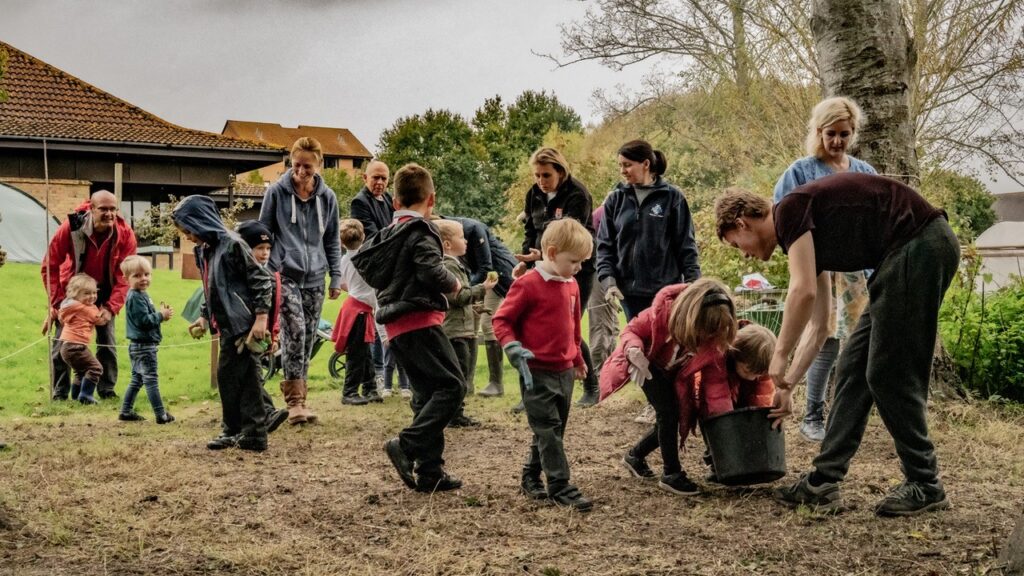There must be some kind of way outta here
Said the joker to the thief
There’s too much confusion
I can’t get no relief
In this time of big troubles, it’s easy to feel hopeless. And if you’re an anxious type, like me, you’ll always find plenty to unsettle you. Yet the wellbeing experts tell us that some degree of hope is important. This blog aims to help you find it: fortunately some wise minds have already explored the terrain!The book Active Hope is a good place to start, written by Joanna Macy and Chris Johnstone. They say:
Active Hope … is a process we can apply to any situation, and it involves three key steps. First, we take a clear view of reality; second, we identify what we hope for in terms of the direction we’d like things to move or the values we’d like to see expressed; and third, we take steps to move ourselves or our situation in that direction. Since Active Hope doesn’t require our optimism, we can apply it even in areas where we feel hopeless.
For an overview of their excellent book, see my blog here

You may feel this kind of hope requires a bit of self-trickery or sleight of hand, and I think that’s exactly what we have to find in these crazy times. One of the best guides to this constructive doublethink is Jem Bendell’s Deep Adaptation approach. His expectations of major societal disruptions are sadly looking more likely, but he is very clear that there are many positive possibilities we can choose and create in a time of turmoil.
For example, my favourite blog by Jem is called The Love in Deep Adaptation. We can choose to reach out to others with love and compassion, we can support one another and deepen community, and possibilities like this can give us hope. For more on Deep Adaptation, see www.deepadaptation.info, or my overview blog.
Thich Nhat Hhan was a leading Buddhist teacher, who died quite recently, and was eloquent about mindful ways of finding joy here and now, especially in Nature. He says:
“We only touch the things that make us suffer, and because of that, we give our heart a hard time by our worries and strong emotions … (but) the conditions for peace and happiness are already present. When we walk mindfully and touch the Earth with our feet, when we drink tea with friends and touch the tea and our friendship, we get healed, and we can bring this healing to society.”
None of these wise guides are urging you to change your view of the future outlook, even if it is gloomy. What we can change are our reactions to it, and we can bring love and care into our relations with others, who are probably pretty alarmed too.
Changing your responses
It has taken a long time for me to learn to live with my sense of despair about the big-picture, longer-term outlook for our world. The impacts of climate change, habitat loss, social injustice, are causing huge suffering, and I can’t make any rational sense of the situation. However, when I pull my attention towards the many blessings in my life, and positive steps I can take, I can feel glimmers of hope. And it comforts me to see that millions of other people are doing what they can, even though they may feel the same overall despair as me.
Our current situation could fairly be described as a spiritual crisis, where meaning and purpose are hard to find. Some imagination may be needed to regenerate them. For example, try to invent some positive reasons why you are in this situation. One of my helpful fantasies is that we’ve all been involuntarily enrolled in an intensive, experiential training in personal and collective resilience, which is unfolding in real time. And wow, it seems so realistic!
Rob Hopkins, founder of the Transition movement, wrote in a recent article in Permaculture Magazine about how helpful it is to picture in detail the gloomy future we worry about. By doing so, we can highlight the kinds of adaptation and resilience which will help us to face it, and hopefully to create an actual future which is better than our fears.
If the spiritual aspect interests you, here are a few resources you could explore:
- In the Christian tradition, try contemplative prayer, and writers like Richard Rohr and Cynthia Bourgeault.
- From the Buddhist tradition, Thich Nhat Hanh is a good place to start.
- In the Sufi tradition, try Llewellyn Vaughan Rees, or my blog on A Sufi view of Climate Change.
- There’s an excellent collection of essays, called Spiritual Ecology: The Cry of the Earth, with pieces from most of the teachers named in this blog.
Another valuable insight about mining for hope is that it helps if you can do some of this with others. As Joanna Macy points out, it’s easy to feel alone with your concerns, easy to think you’re out of line because such gloom is not widely expressed. So sharing your worries and your hopes is empowering.
